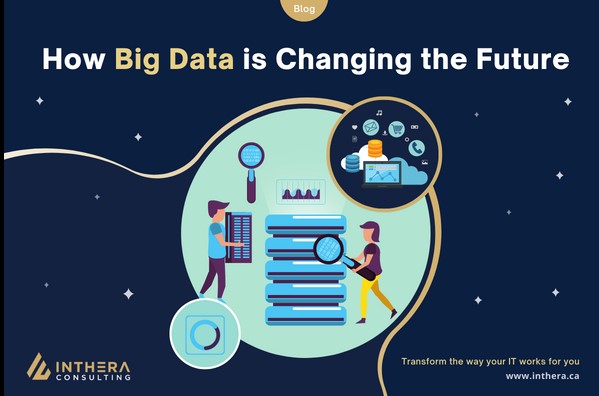The use of big data has been growing rapidly in recent years, and this trend is expected to continue in the future. As we approach 2023 and beyond, new trends and predictions are emerging that will shape the future of big data. This article explores the future of big data and the trends and predictions for 2023 and beyond.
Trends in Big Data
Edge Computing
Edge computing involves processing data closer to its source, rather than sending it to a central location for processing. This approach can improve the speed and efficiency of data processing and reduce the amount of data that needs to be transferred.
Artificial Intelligence and Machine Learning
Artificial intelligence (AI) and machine learning (ML) are becoming increasingly important in big data analytics. These technologies can help automate data processing, identify patterns, and make predictions.
Cloud Computing
Cloud computing has become the go-to platform for big data analytics. Cloud providers offer scalable and cost-effective solutions for storing and processing large volumes of data.
Internet of Things (IoT)
The Internet of Things (IoT) is generating vast amounts of data that can be analyzed to improve business operations and enhance the overall customer experience. By analyzing IoT data, businesses can gain insights into customer behavior, identify operational inefficiencies, and optimize processes.
Predictions for the Future of Big Data
Increased Use of Edge Computing
As the volume of data generated by IoT devices continues to grow, there will be a greater need for edge computing. This approach can improve the speed and efficiency of data processing and reduce the amount of data that needs to be transferred.
Rise of Explainable AI
Explainable AI refers to the ability to explain how AI models arrive at their decisions. As AI becomes more pervasive, there will be a greater need for transparency and accountability in AI decision-making.
Quantum Computing
Quantum computing has the potential to revolutionize big data analytics by enabling faster and more efficient data processing. While quantum computing is still in its early stages, it has the potential to transform the future of big data.
Increased Focus on Data Privacy and Security
As the use of big data continues to grow, there will be an increased focus on data privacy and security. Businesses will need to ensure that they comply with relevant regulations and protect customer data.
Benefits of Big Data in the Future
Improved Business Operations
Big data analytics can help businesses identify inefficiencies and optimize processes, leading to improved business operations and cost savings.
Enhanced Customer Experience
Big data analytics can also improve the overall customer experience by providing personalized experiences, predicting customer needs, and optimizing processes.
Better Decision-Making
Big data analytics can help businesses make better decisions by providing insights into customer behavior, market trends, and operational efficiency.
Challenges of Big Data in the Future
Skill Gap
There is a shortage of professionals with the skills needed to work with big data analytics tools. Businesses will need to invest in training and development programs to bridge this skill gap.
Data Quality
The quality of the data used for analysis can affect the accuracy of the insights generated. Businesses will need to ensure that their data is accurate and reliable.
Privacy and Security
The use of big data analytics raises privacy and security concerns. Businesses will need to ensure that they comply with relevant regulations and protect customer data.
Conclusion
The future of big data is bright, with new trends and predictions emerging that will shape the way we analyze and use data. By staying ahead of these trends and addressing the challenges associated with big data analytics, businesses can gain a competitive advantage and improve the overall customer experience. The future of big data is exciting, and businesses that embrace it are better positioned to succeed in the years to come.
FAQs
- What is big data? Big data refers to the large volumes of data generated by businesses, which can be analyzed to gain insights into customer behavior, market trends, and operational efficiency.
- What are the trends in big data? Some of the trends in big data include edge computing, artificial intelligence and machine learning, cloud computing, and the internet of things.
- What are the predictions for the future of big data? Predictions for the future of big data include increased use of edge computing, the rise of explainable AI, quantum computing, and an increased focus on data privacy and security.
- What are the benefits of big data in the future? The benefits of big data in the future include improved business operations, enhanced customer experience, and better decision-making.
- What are the challenges of big data in the future? Challenges of big data in the future include a skill gap in professionals with the skills needed to work with big data analytics tools, data quality, and privacy and security concerns.
Read More :
- Why Big Data is the Key to Better Customer Engagement and Retention
- How Big Data is Changing the Face of Healthcare for Good
- Big Data Analytics : Revolutionizing Business Operations and Profits
- Hadoop vs Spark : Choosing the Right Tool for Your Big Data Needs
- Big Data Management : The Must-Have Tools for Data Cleaning and Preparation
